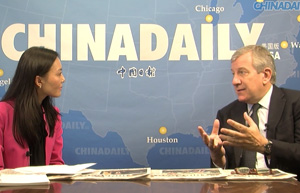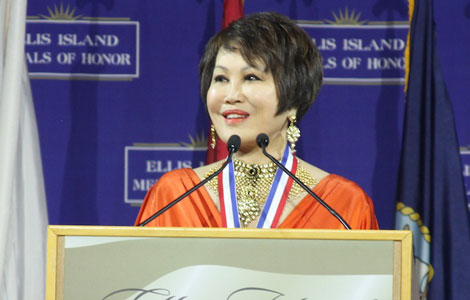Yuan fall 'dictated by market'
Updated: 2014-05-14 00:47
By ZHAO YINAN in Beijing and CHEN WEIHUA in Washington (China Daily)
|
||||||||
China stands firm in face of RMB depreciation against the US dollar
Recent falls in the yuan exchange rate against the US dollar are based entirely on market forces, a senior official said on Tuesday after Premier Li Keqiang met with visiting US Treasury Secretary Jacob Lew.
Zhu Guangyao, vice-minister of finance, said China would not bow to United States pressure over the yuan's recent depreciation.
The Chinese currency has fallen by 2.9 percent against the US dollar since January, after appreciating by about 35 percent since 2005.
Zhu said a "two-way movement" had been the consensus of China and the US, as it reflected market forces and could avoid speculation.
Lew told media before and during his trip to Beijing that he had noted the depreciation of the yuan in recent months and would press China to allow the market to play a bigger role in determining the value of the Chinese currency, indicating that China was manipulating the rate.
Zhu said Lew had exchanged views on economic issues, including the yuan exchange rate, with top officials in China, including Premier Li.
The renminbi-US dollar spot intraday trading band was widened from 1 percent to 2 percent in March, which experts said indicated the government was committed to greater renminbi internationalization and liberalization of the currency's exchange rate.
Li promised in an annual policy speech in March that the market would be allowed to play a decisive role in allocating credit and other resources.
Zhu said the US welcomed China's decision in March to expand the exchange rate trading band.
"What the US is paying attention to now is that, according to the thinking of the US, the renminbi is going down in a one-way direction," he said. "China believes that both rises and falls are the reflection of the market, and it is firm on its determination to reform the renminbi interest rate. It is clear on the direction of that reform."
Nicholas Lardy, a senior fellow at the Peterson Institute for International Economics, a private, nonprofit and nonpartisan think tank in Washington DC, said he believed there had been no fundamental change in China's exchange rate policies.
Zhu said China and the US would discuss the issue at the sixth Strategic and Economic Dialogue between the two largest economies in the world in July.
China also voiced concerns during Li's meeting with Lew over the US decision to gradually wind down quantitative easing, and its impact on China, Zhu said.
Quantitative easing is an unconventional monetary policy used by central banks to stimulate economies when standard monetary policy has become ineffective.
Zhu said, "Although the US economy missed its expansion target in January, China is glad to see that it has regained momentum in the second quarter. Such recovering momentum is important for both the US and China."
In terms of the Chinese economy, Zhu stressed the government's reluctance to introduce major stimulus measures to smooth short-term growth fluctuations, as the country's basic economic situation had not changed.

 Forum trends: How to make friends with foreigners
Forum trends: How to make friends with foreigners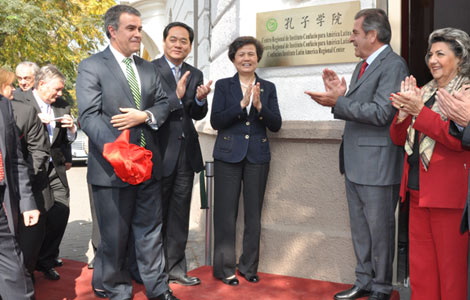
 Confucius Inst launches Latin American hub
Confucius Inst launches Latin American hub
 More than 10,000 dancers will parade in NYC
More than 10,000 dancers will parade in NYC
 Abercrombie plans 100 new stores
Abercrombie plans 100 new stores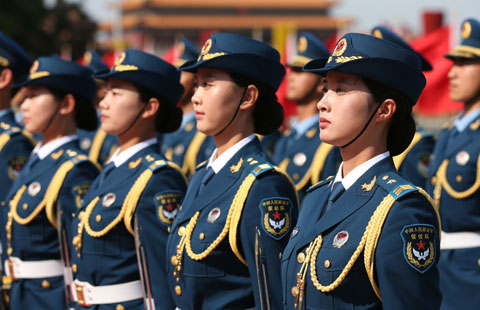
 PLA Honor Guard debuts female members
PLA Honor Guard debuts female members
 Roof garden in Liuzhou
Roof garden in Liuzhou
 Forum trends: You know you are in China when…(Part II)
Forum trends: You know you are in China when…(Part II)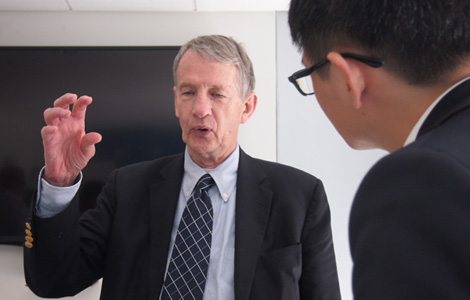
 Experts: Currency no big deal
Experts: Currency no big deal
Most Viewed
Editor's Picks

|

|
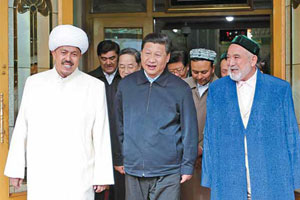
|
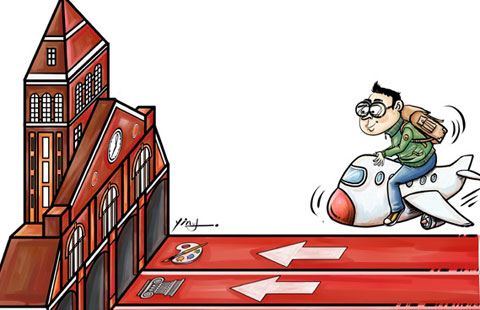
|

|

|
Today's Top News
China warns US over sea issue
Former policemen convicted of forced confession
Li: China, US have more common interests
Govt to help grads start businesses
Banks told to act more quickly on home loans
School tests blamed for suicides
Yuan fall 'dictated by market'
China far from being 'aggressive' in South China Sea
US Weekly

|

|
